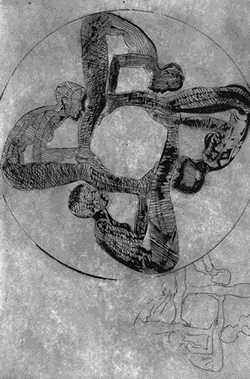|
PODER Y
ETNICIDAD
Relaciones interétnicas en
la Guatemala liberal
Edgar Esquit
 Este
trabajo analiza la relación entre poder y etnicidad en
el altiplano central de Guatemala, específicamente en el
departamento de Chimaltenango, durante el período que abarcan
los años de 1871 a 1944. Se examina la dinámica
interétnica –entre indígenas y ladinos- a partir
de la institucionalidad municipal y departamental así como
su relación con el control de recursos tales como la tierra
y la fuerza de trabajo de los indígenas. Todo esto se observa
en el marco del Estado guatemalteco que en esa época tomó
el liberalismo como la premisa más importante para su desarrollo
económico y político, dando lugar a la dictadura
de una oligarquía cafetalera. El análisis concluye
sobre la importancia política de las elites ladinas rurales
en la región y la estructura de dominación en el
país y la forma en que los indígenas enfrentaron
el poder de éstos, los cafetaleros y el Estado. Este
trabajo analiza la relación entre poder y etnicidad en
el altiplano central de Guatemala, específicamente en el
departamento de Chimaltenango, durante el período que abarcan
los años de 1871 a 1944. Se examina la dinámica
interétnica –entre indígenas y ladinos- a partir
de la institucionalidad municipal y departamental así como
su relación con el control de recursos tales como la tierra
y la fuerza de trabajo de los indígenas. Todo esto se observa
en el marco del Estado guatemalteco que en esa época tomó
el liberalismo como la premisa más importante para su desarrollo
económico y político, dando lugar a la dictadura
de una oligarquía cafetalera. El análisis concluye
sobre la importancia política de las elites ladinas rurales
en la región y la estructura de dominación en el
país y la forma en que los indígenas enfrentaron
el poder de éstos, los cafetaleros y el Estado.
POWER AND ETHNICITY
Interethnic relations
in liberal Guatemala
Edgar Esquit
This
article analyzes the power-ethnicity relation in the central highlands
of Guatemala, specifically in the state of Chimaltenango during
1871–1944. The interethnic dynamics –between Indians
and ladinos– are examined from the standpoint of municipal
and departmental (state) institutionality, as well as how they
relate with the control of resources such as land and the Indian
labor force. All this is observed within the Guatemala State framework
that at the time embraced liberalism as the paramount postulate
for economic and political growth, paving the way for the dictatorship
of an oligarchy of coffee growers. The analysis concludes stressing
the political clout of rural ladino élites in the region
and the country’s domination structure; as well as the manner
in which the Indians confronted their power as well as the power
of coffee growers and the State.
|